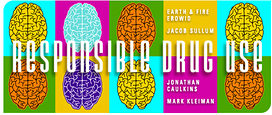To clarify my analogies between taxing alcohol on the one hand and taxing cars, firearms, or sex on the other: In all these cases, some users — drunken drivers, reckless (but sober) drivers, violent criminals, promiscuous disease carriers — cause harm to others. But in my view, it is not fair to tax all users in an effort to deter the antisocial minority.
I did not mean to imply that the sheer number of drug offenders, by itself, tells us the law should be changed. (Another crucial point to consider is the fact that consuming a politically incorrect intoxicant, unlike committing a predatory felony, does not violate anyone’s rights.) But when we live in a society where most adults (current retirees excluded) have tried illegal drugs (usually marijuana), that fact might reasonably be expected to affect the views of policy makers regarding the treatment of pot smokers. Generally speaking, personal experience with marijuana reveals it to be not as big a deal as the government claims — which explains the government’s current emphasis on increases in potency that supposedly make today’s pot much more dangerous that what Mom and Dad smoked. For the vast majority of users, smoking pot is far less damaging than getting busted for it would be. Politicians who support the current policy of arresting pot smokers therefore have some explaining to do if they themselves smoked pot without suffering any legal consequences, unless they are prepared to say they should have been arrested — i.e., that such a life-disrupting brush with the law would have been entirely fair and appropriate. Does Barack Obama or Sarah Palin truly believe that? Smoking pot did not cause any noticeable harm to their lives or careers. But if they had been arrested, they probably would not be where they are today.

